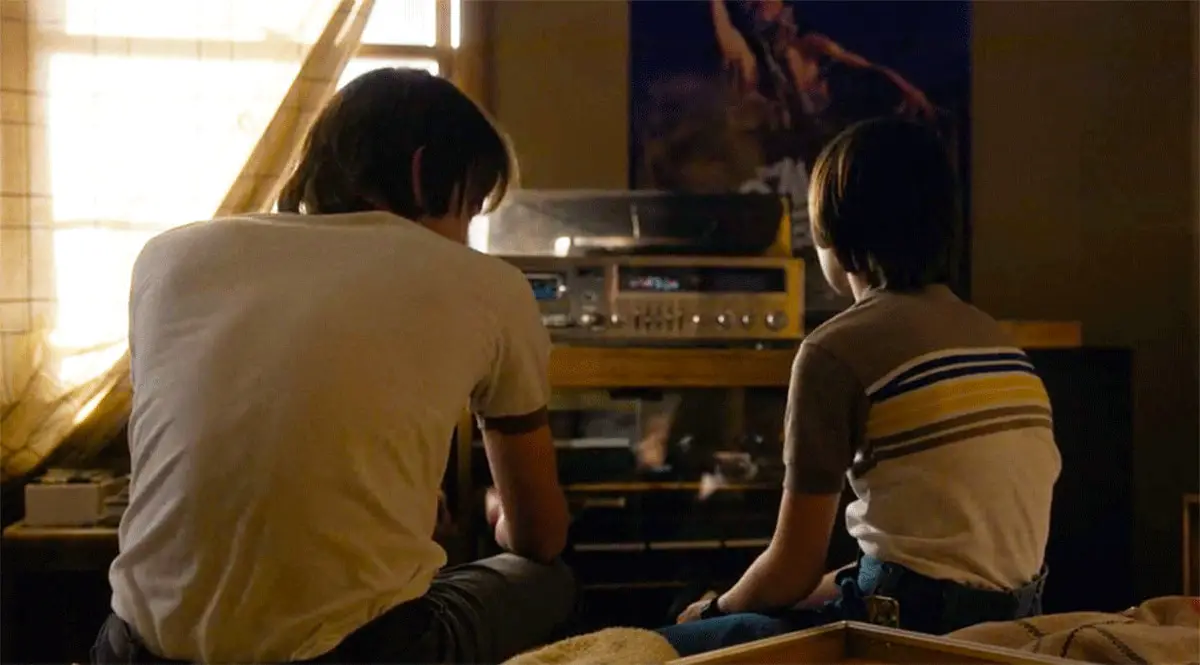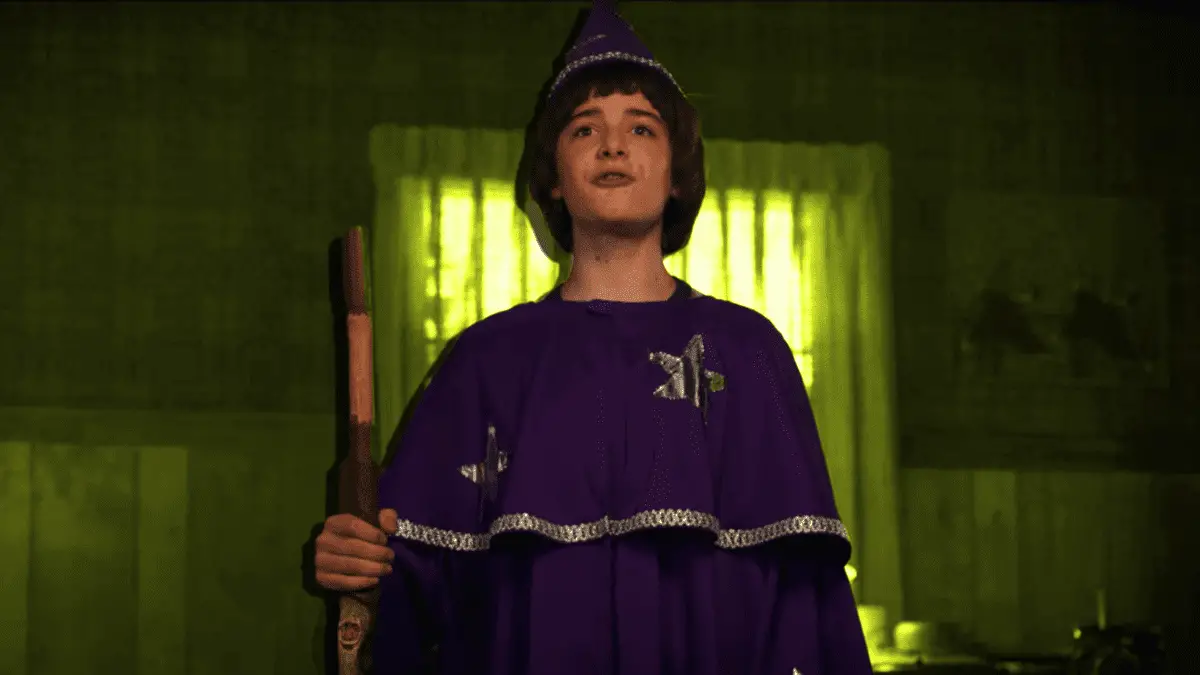Nostalgia is booming in popular culture now with reboots and period pieces like Stranger Things ,which hit the small screen in 2016 and took the world by storm with its 1980s nostalgia and compelling supernatural story. Audiences who grew up in the 1980s are hit with memories of landlines, arcades, walkie-talkies, and those chunky TVs with rabbit ears. While the physical props play a role in setting the timeline, it is important to remember the social and political climate of the 1980s that influence the storyline.
The Cold War between the United States and the Soviet Union plays the biggest political role throughout the show, but another one is closeted and requires closer attention to fully see. From the first season, Will Byers’ sexuality comes to us in hints that are almost missable. His father tries to encourage Will toward more “masculine” activities, and he and his school bullies refer to Will as “queer” before he can even understand his own identity. So, because Stranger Things is a coming-of-age period piece, what is so significant about Will’s story as opposed to the others?

Like the Cold War, there was another issue plaguing the United States, and the rest of the world, but mostly shook the queer community. HIV/AIDS epidemic reached its peak in the 1980s with no hope for those in hospitals. Without the efforts of ACT UP, many more queer people would have been left to die of the deadly disease. With that said, what is the significance of this regarding Will’s identity?
During the 1980s, when Stranger Things takes place, homophobia was rampant all over the country, and the perception of AIDS as somehow tied to sexuality provided more of a reason for a large portion of society to continue feeling deep hatred toward queer people, especially gay men, and deny their basic human rights. Even though Will has not reached sexual maturity, the existence of AIDS in this era effectively silences him, and he never actually voices his attractions or even mutters the word “gay.”

In the 4 seasons that have aired, the hints are so subtle that they can easily be ignored. While his friends hit puberty and spend every waking moment wanting to smooch their girlfriends, Will ignores his sexuality completely and urges his friends to play D&D with him instead. Without confirmation from creators, he can easily be read as asexual or aromantic. In season 4, during his heart-to-heart with Jonathan, he still does not utter the words “I’m gay” and breaks out in tears because his identity is something that scares him during a time when many queer men were (justifiably) scared to admit who they were to a bigoted society.
Aside from Will and his identity, there are more inconspicuous cues that the AIDS epidemic is a looming specter behind the plot. At the beginning of season 4, when Vecna scans for his next victim, one of the voices of a man cuts through saying “the doctor is wrong, it’s just a cough.” While this faceless man never appears or speaks more than this one line, the line itself suggests that the doctor diagnosed him with HIV/AIDS. At a time when many queer men would have feared to admit their sexuality, many were also unable to voice the reality of a disease that wider society used to justify their hatred. Subtle as it is, this tiny snippet of dialogue does acknowledge the reality of the epidemic in the series.
As a counter-example to Will’s anxiety as a young gay man, the show gives us Robin, a lesbian. She speaks more freely with Steve and does not reject her identity. Since AIDS largely affected gay men and trans women, Robin feels more security in her identity despite also facing homophobia.

In fact, it is possible to read the entire plot of the show as a metaphor for AIDS; regardless of whether this is authorial intention, it works. It is Will that disappears in season 1, becomes overtaken by the Mind Flayer in season 2, and has a continued physical connection to the Mind Flayer and Vecna.
Will being kidnapped into the Upside Down can symbolize the beginning of HIV, when seroconversion begins (the point at which antibodies for a disease will be present in the blood and thus a test would be HIV positive) and learn of their diagnosis. They then would try to run from the disease with AZT, the only drug at the time that slowed down the virus, just as Will ran from the monsters in the Upside Down. Becoming overtaken by the Mind Flayer can symbolize the onset of AIDS taking over the body. The Mind Flayer overtakes and devours many others in season 3, which, in the analogy I’m building, would represent the spread of the disease.
Although Stranger Things has not yet reached the release of “the cocktail” (a specific combination of multiple drugs used to fight HIV) historically, Will’s exorcism can symbolize the new hope that came with the release of the cocktail and other life-saving medications. Even with these medications, though, it has thus far been impossible to fully eradicate the virus, hence Will’s body remaining physically connected to the Mind Flayer/Vecna as the seasons progress.
So what do you think? Does viewing the show this way enhance our understanding of the story it’s telling about being a child in the 80s? I think so. And again, regardless of whether the creators intend such a reading, when viewed through this lens Stranger Things tells a powerful, hopeful story about a young, terrified gay boy trying to come to terms with his sexuality in a dangerous time for gay men in the United States. And, just like the monsters he fights, we can have hope that he will be victorious, or at the very least, will keep in fighting to be himself with his friends by his side.
Images courtesy of Netflix
Have strong thoughts about this piece you need to share? Or maybe there’s something else on your mind you’re wanting to talk about with fellow Fandomentals? Head on over to our Community server to join in the conversation!

